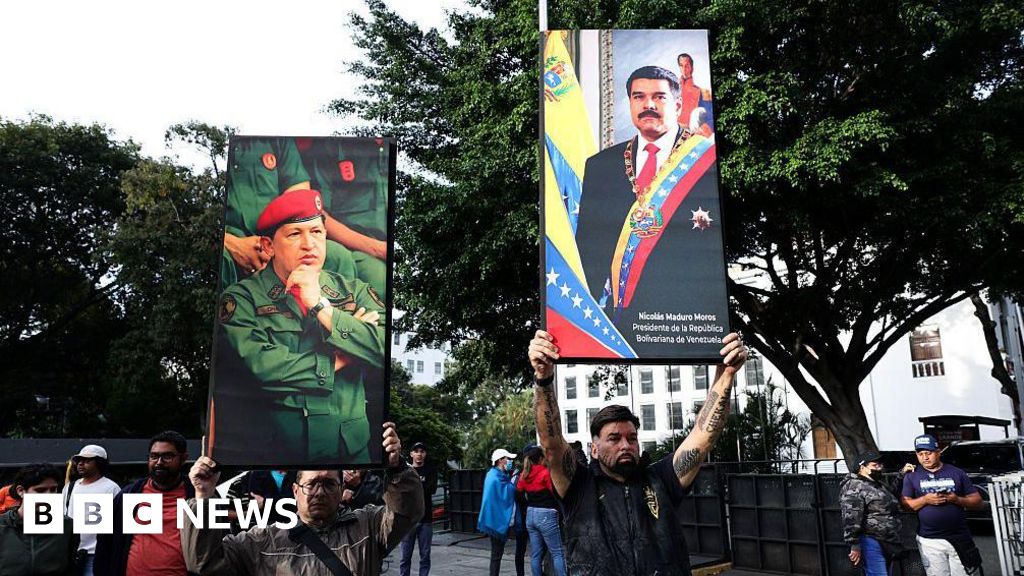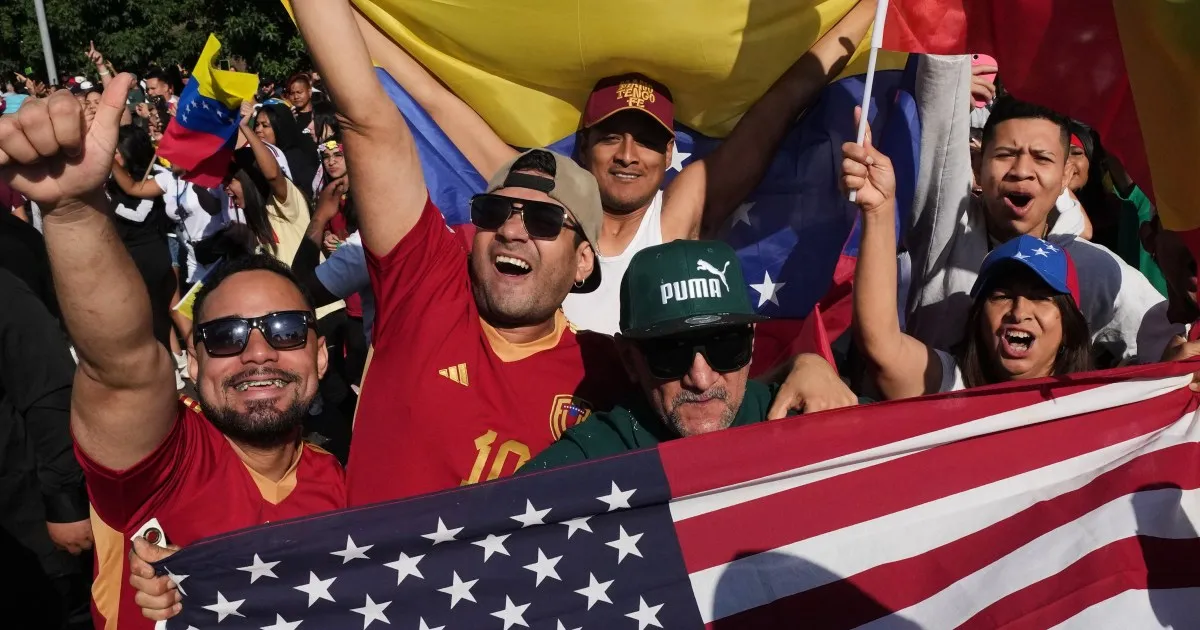World leaders react to US capture of Venezuelan leader Nicolás Maduro
Leaders around the world have responded with a mix of condemnation and support to the US capture of Venezuela’s President Nicolás Maduro.
Following a large-scale strike on Venezuela on Saturday, Maduro and his wife were captured by US forces and removed from the country. The pair have been indicted on drug charges in New York.
In an initial response, UK Prime Minister Keir Starmer said his government would “shed no tears” for the end of Maduro’s regime.
Neighbouring Latin American countries condemned the actions, as did Venezuela’s long-term allies, Russia and China. China said it was “deeply shocked and strongly condemns” the use of force against a sovereign country and its president.
Russia accused the US of committing “an act of armed aggression”.
Iran, which is locked in its own dispute with Trump over his promise of intervention in its country, called the strikes a “flagrant violation of the country’s national sovereignty”.
Trump said the US will “run” Venezuela “until we can do a safe, proper and judicious transition”.
Many Latin American leaders condemned the US actions.
President Luiz Inacio Lula Da Silva in Brazil wrote on X that the actions “cross an unacceptable line”, adding “attacking countries in flagrant violation of international law is the first step toward a world of violence, chaos, and instability”.
Colombian President Gustavo Petro called the strikes an “assault on the sovereignty” of Latin America, while Cuba’s President Miguel Diaz-Canel described it as a “criminal attack”.
Chile’s President Gabriel Boric expressed “concern and condemnation” on X and called for “a peaceful solution to the serious crisis affecting the country”.
Cuban President Miguel Diaz-Cane accused the US of a “criminal attack”, while Uruguay said in an official statement it was monitoring developments “with attention and serious concern” and “rejects, as it always has, military intervention”.
Trump has indicated that Cuba could become part of a broader US policy in the region, calling it a failing nation. Secretary of State Marco Rubio said Cuba was a disaster run by incompetent leaders who supported Maduro’s administration. He said the government in Havana should be concerned
The Venezuelan Interior Minister Diosdado Cabello urged citizens to remain calm and to trust the country’s leadership and military, saying, “The world needs to speak out about this attack,” according to the Reuters news agency.
But Argentinian President Javier Milei – who Trump has described as his “favourite president” – wrote “Freedom moves forward” and “Long live freedom” on social media.
Meanwhile UK Prime Minister Sir Keir Starmer refused to be drawn into whether or not the military action may have broken international law.
In an interview with the BBC’s Sunday with Laura Kuenssberg programme on Saturday morning, the prime minister did not condemn the US strikes.
He said he was waiting to establish all the facts but would not “shy away from this”, adding he was a “lifelong advocate of international law”.
The UK was not involved in the strikes and Sir Keir said he had not spoken to Trump about the operation.
Later on Saturday, Sir Keir posted on X that the UK “regarded Maduro as an illegitimate president and we shed no tears about the end of his regime”.
“The UK government will discuss the evolving situation with US counterparts in the days ahead as we seek a safe and peaceful transition to a legitimate government that reflects the will of the Venezuelan people,” he added.
The EU’s top diplomat Kaja Kallas reiterated the bloc’s position that Maduro lacks legitimacy, that there should be a peaceful transition of power, and that the principles of international law must be respected.
French President Emmanuel Macron said the transition of power “must be peaceful, democratic, and respectful of the will of the Venezuelan people” in a post on X.
He added he hoped González – the opposition’s 2024 presidential candidate – could ensure the transition.
German Chancellor Friedrich Merz said the legality of the US operation was “complex” and international law in general must apply.
He warned that “political instability must not be allowed to arise in Venezuela”.
UN Secretary General Antonio Guterres said he was “deeply concerned that the rules of international law have not been respected”, his spokesperson said. He was “deeply alarmed” by the strikes, which set a “dangerous precedent”.
He called on all actors in Venezuela to engage in inclusive dialogue, in full respect of human rights and the rule of law”.
In the US, Senate Minority Leader Chuck Schumer, a Democrat, said, “Let me be clear, Maduro is an illegitimate dictator, but launching military action without congressional authorization, without a federal plan for what comes next, is reckless”




